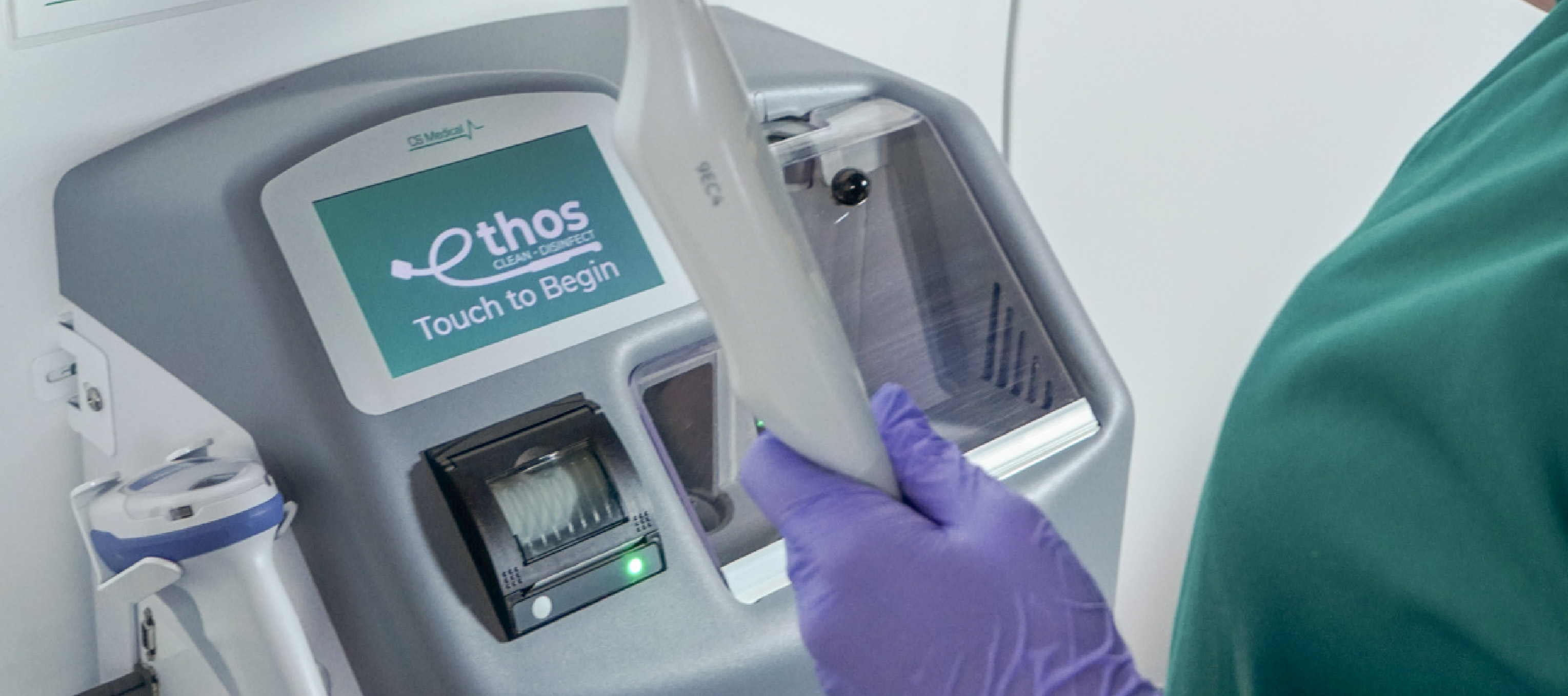Transesophageal echocardiogram (TEE) ultrasound probes are extremely helpful medical devices, but are also very delicate and very expensive; as such, they need to be gently and meticulously maintained. TEE probes are becoming more of a diagnostic tool in today’s medicine. That being the case, how can one be sure that fragile probes will withstand repeatedly undergoing the harsh process of high-level disinfection? Material compatibility testing is what ensures the safety and longevity of practically every medical device on the market and TEE probes are no exception. Material compatibility testing does not only protect the lifespan of your TEE probe, it also protects your patients and your facility.
In the TEE probe world, material compatibility testing is a process by which probe manufacturers and the manufacturers of probe cleaners and disinfectors work together to ensure that the various detergents, disinfectants, and reprocessors will not damage or degrade probes. In order to accomplish this task, probes are often run through thousands of cycles in a high-level disinfector, like the TEEClean® or the TD 100, or submerged in detergents or disinfectants for extended periods of time. If any incompatibility is discovered during the course of the tests, the manufacturers will work together to resolve the issue. Once the tests have been run and material compatibility has been determined, the products are considered safe to use together and the ultrasound probe manufacturer will warrant the product for use with the cleaner, disinfectant, or reprocessor.
Aside from establishing that the high-level disinfectants and detergents will not damage the probe, material compatibility tests also help determine the life expectancy of these devices. Because of the extensive testing performed on these probes, users can have confidence that a warranty guaranteed by the probe’s manufacturer will remain valid through the life of the device. It is critical to check with your TEE probe’s manufacturer about which products have been cleared for use with your TEE probe. When confirming compatibility, make sure the compatibility study was completed with not only the chemistries, but the reprocessor that is used to clean and/or disinfect the soiled TEE probe.
Material compatibility testing is crucial to the safety and health of patients. If a probe has not been tested and proven compatible with the disinfectants and detergents being used on it, the probe shaft’s surface may begin to degrade and become damaged. This could make the surface of the shaft porous and more likely to retain bacteria with each cycle through these chemicals. The probe would then become incredibly difficult if not impossible to fully clean and high-level disinfect. This could put patients in danger of contracting an HAI. Additionally, a damaged probe can even fatally electrocute a patient. Ensuring material compatibility is an absolute must when it comes to your TEE probe.
It is also important that your probes be compatible with the disinfectants and detergents used because a damaged or broken probe will result in negative outcomes for any healthcare facility. Probes are quite costly, so replacing them can set a facility back significantly. Repairs, while more affordable than replacements, are still pricey. An ounce of prevention is certainly worth a pound of cure when it comes to being sure that your probes are compatible with the detergents, disinfectants, and reprocessing devices you use them with.
Additionally, material compatibility guidelines are strictly directed by the FDA in order to make sure that probes remain safe for patients. For a probe manufacturer to obtain ultimate FDA approval, their probes must be thoroughly and systematically tested for material compatibility and they must also submit efficacy data. Efficacy data is a record of how effective the high-level disinfectants and reprocessors are at high-level disinfecting a probe from contaminants. The FDA provides manufacturers with an extensive guidance document outlining the requirements.
As patient safety and user satisfaction are priorities for CS Medical, we work with many TEE probe manufacturers to assure customers that their probes are mutually compatible with our entire suite of products. Before using any detergents or disinfectants on your TEE probes, always be sure to ask the manufacturer for a confirmation of compatibility.


